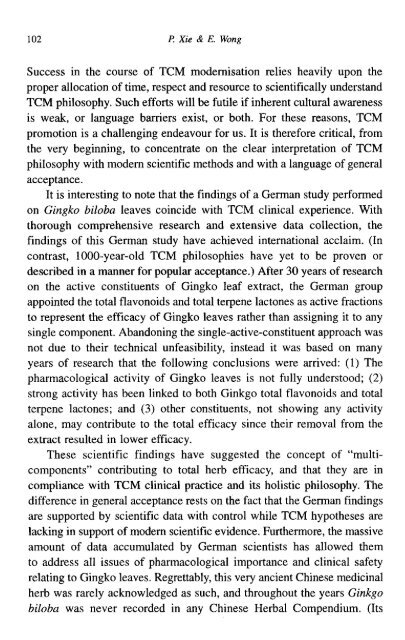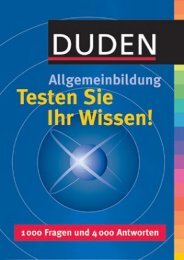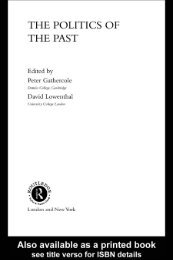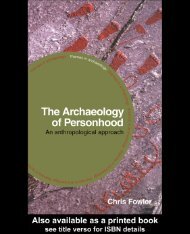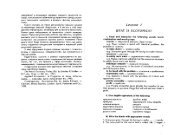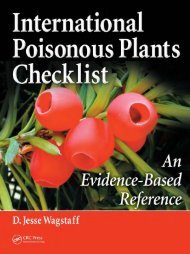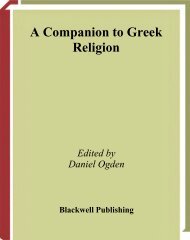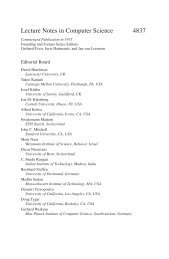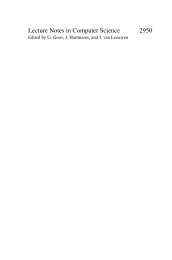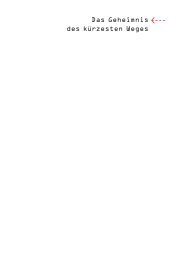Chinese Medicine - Modern Practice (252 pages)
Chinese Medicine - Modern Practice (252 pages)
Chinese Medicine - Modern Practice (252 pages)
- TAGS
- cs5235.userapi.com
Create successful ePaper yourself
Turn your PDF publications into a flip-book with our unique Google optimized e-Paper software.
102 P Xie & E. Wong<br />
Success in the course of TCM modernisation relies heavily upon the<br />
proper allocation of time, respect and resource to scientifically understand<br />
TCM philosophy. Such efforts will be futile if inherent cultural awareness<br />
is weak, or language barriers exist, or both. For these reasons, TCM<br />
promotion is a challenging endeavour for us. It is therefore critical, from<br />
the very beginning, to concentrate on the clear interpretation of TCM<br />
philosophy with modern scientific methods and with a language of general<br />
acceptance.<br />
It is interesting to note that the findings of a German study performed<br />
on Gingko biloba leaves coincide with TCM clinical experience. With<br />
thorough comprehensive research and extensive data collection, the<br />
findings of this German study have achieved international acclaim. (In<br />
contrast, 1000-year-old TCM philosophies have yet to be proven or<br />
described in a manner for popular acceptance.) After 30 years of research<br />
on the active constituents of Gingko leaf extract, the German group<br />
appointed the total flavonoids and total terpene lactones as active fractions<br />
to represent the efficacy of Gingko leaves rather than assigning it to any<br />
single component. Abandoning the single-active-constituent approach was<br />
not due to their technical unfeasibility, instead it was based on many<br />
years of research that the following conclusions were arrived: (1) The<br />
pharmacological activity of Gingko leaves is not fully understood; (2)<br />
strong activity has been linked to both Ginkgo total flavonoids and total<br />
terpene lactones; and (3) other constituents, not showing any activity<br />
alone, may contribute to the total efficacy since their removal from the<br />
extract resulted in lower efficacy.<br />
These scientific findings have suggested the concept of “multi-<br />
components” contributing to total herb efficacy, and that they are in<br />
compliance with TCM clinical practice and its holistic philosophy. The<br />
difference in general acceptance rests on the fact that the German findings<br />
are supported by scientific data with control while TCM hypotheses are<br />
lacking in support of modern scientific evidence. Furthermore, the massive<br />
amount of data accumulated by German scientists has allowed them<br />
to address all issues of pharmacological importance and clinical safety<br />
relating to Gingko leaves. Regrettably, this very ancient <strong>Chinese</strong> medicinal<br />
herb was rarely acknowledged as such, and throughout the years Ginkgo<br />
biloba was never recorded in any <strong>Chinese</strong> Herbal Compendium. (Its


